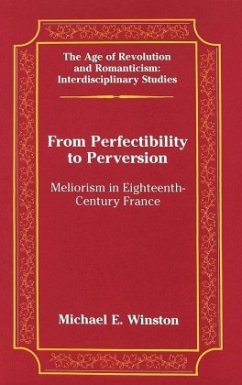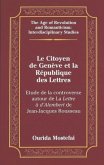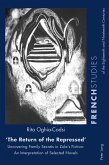From Perfectibility to Perversion: Meliorism in Eighteenth-Century France traces the evolution of human perfectibility discourse during the second half of the eighteenth century and the early post-Revolutionary era in France. Examining key articulations of Enlightenment meliorism as it shifts between open-ended models of human perfectibility and «fixist» conceptions of the human body, this book will appeal to a range of specialists because it draws on a variety of primary sources, from Buffon and Rousseau to important medical theorists of the pre- and post-Revolutionary period, and juxtaposes seemingly disparate domains of inquiry in informative and provocative fashion.
«By meshing historical and scientific accuracy with literary sensitivity, Michael E. Winston opens up important and fruitful avenues of inquiry. Readers interested in the best tradition of Enlightenment interdisciplinarity will not want to miss reading this perceptive and elegantly written book.» (Josue Harari, Asa Candler Professor of French, Emory University)








